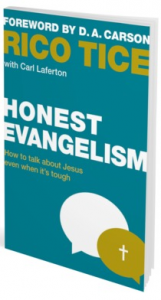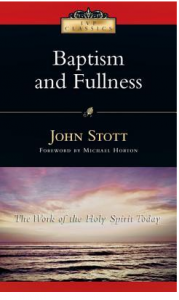(Re-post from July 2017.)
Picture in your mind for a moment an evangelist…
Did Billy Graham come to mind? Or someone with a loud, confident voice standing at a street corner? File that visual image for a moment.
Now think back to the moment you came to believe for the first time. Who was it that had the most significant influence on you making that decision? Perhaps it was your mum, or your youth leader or your school friend.

Often the word evangelist conjures up an image which is different from those who actually have the most regular conversations and are in relationships that lead to conversion. Maybe we need to think again about the word ‘evangelist’?

I believe that I am called to be an evangelist: three spiritual gift questionnaires and a few pastoral interviews point to my passion for those who don’t yet believe and my drive to reach out. But I don’t fit the mould of the traditional evangelist, which is often a preacher and an extrovert who leads strangers to Christ through brief encounters on buses or in shopping centres.
Books on evangelism are often written by those who can do stranger evangelism and although the books are intriguing and admirable, they don’t often apply to me. I finish reading and feel inadequate somehow, wishing that I could be a different person. Rico Tice writes a helpful book called Honest Evangelism, where he admits that evangelistic conversations are often filled with pain and rejection. In chapter six, Tice encourages readers to be themselves.
I was delighted to read his descriptions of the different styles of Bible characters and how they approached reaching out with the gospel.
- Peter seemed to be the archetypal Evangelist: straight-talking, immensely gifted and thick-skinned.
- Paul is the Apologist: the intellectual, considered debator.
- The healed blind man is the Storyteller: able to share his testimony with conviction and to win over others.
I was beginning to wonder who I was and where I fitted in, then I read Tice’s description of…
- The Inviter, the Woman at the Well. His description here struck a chord, I saw myself in her enthusiasm for gathering others as she hurried back to her village and brought others along to meet the Messiah. I love to include others, to invite them to my house, to organize gatherings in order to build authentic relationships, create community and call on others to “Come and See”, to meet Jesus.

Moving from England to California recently has meant starting again and praying through what this looks like in a new cultural environment. Within the first year, this meant trying to invite others into my home for meals once a month. I am discovering that my neighbours are sometimes more comfortable meeting in neutral third-space venues, such as Starbucks, rather than in my home or any home.

I am adapting to find new ways to invite people to church and take opportunities to talk about faith and Jesus. A wise curate friend once said that it usually takes three years of being established in a new place and making relationships before others might begin to follow Jesus. There are certainly no conversions yet, but I am grateful for the opportunities God has granted me to build relationships and open up conversations. My husband and I have been asked to lead a new task force in welcoming first-time attendees and building community within our church. I can see the Woman at the Well in all of this; I see myself in her flaws and insecurities and am reminded that God is calling me to call others to Jesus.
John Stott, in his famous short book, Baptism and Fullness, describes six different types of evangelists and adds that he believes there are many others. He talks of crusade evangelists, home evangelists, friendship evangelists, casual contact evangelists, teaching evangelists and literature evangelists.
Activate Your Life has been promoting the concept of Friendship Evangelism for years, encouraging all believers to bring others to Jesus through authentic relationships. Hopefully, this term strikes a chord with you, and you feel an affinity that inspires you. But it might be helpful for you also to consider whether God has created you, enabled you, and gifted you to be an Inviter, an Apologist or a Home Evangelist? We would love to hear from you and learn how you are using your talents and opportunities to be a Literature evangelist or an Apologist, or any other way! Don’t be restricted by an outdated image of what an evangelist has to be. Think outside of the box and be ready for God to use you, in just the way He has created you to be.

You don’t have to be someone you’re not: just the person God made you.



